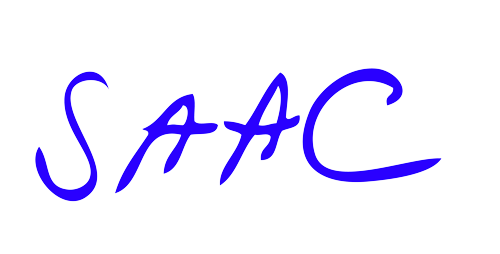Sexually Abused Artists Collective
SAAC is an art collective based in Amsterdam, consisting of both emerging and established artists, including painters, filmmakers, illustrators, performers, writers, and photographers, whose lives have been affected by the consequences of sexual abuse under the age of eighteen. The collective's work revolves around exploring the aftermath of sexual abuse through the practice of art.
Brought together in September 2021 by Jan Hoek, SAAC operates under a non-hierarchical model, ensuring that artistic decisions are reached through mutual agreement. This ensures that every member has a voice, and no one is required to do anything they feel uncomfortable with or are not ready for.
Several members of the collective discovered that their work was linked to themes of sexual abuse and power dynamics prior to joining the group. For others, joining SAAC provided new understanding of how deeply these issues are woven into the fabric of society, and how profoundly sexual abuse shapes personal narratives and perspectives. Through art, the collective strives to amplify the voices of survivors of sexual abuse, challenging societal taboos and the stigma often attached to their experiences. In doing so, SAAC serves as a platform where the complex nuances of abuse can find resonance and empathy.
The collective is currently working on exhibitions, publications, and community outreach initiatives. SAAC aims to initiate a powerful movement for support, healing, understanding, and social change, which is already taking place within the dynamics of the group. By supporting SAAC, you contribute to a vital and innovative movement to end sexual abuse and create a safer, more empathetic society for everyone.
SAAC is more than just an art collective; it is a community of survivors who understand the impact of sexual abuse and advocate for the continuous process of healing. While the collective is not a therapy group, the environment provided within SAAC can be therapeutic for its members. Through shared experiences, it creates a safe space where individuals can express themselves and their emotions without judgment. The group enables members to connect with others who have had similar experiences, offering a rare sense of empathy and belonging that might be hard to find elsewhere.
Brought together in September 2021 by Jan Hoek, SAAC operates under a non-hierarchical model, ensuring that artistic decisions are reached through mutual agreement. This ensures that every member has a voice, and no one is required to do anything they feel uncomfortable with or are not ready for.
Several members of the collective discovered that their work was linked to themes of sexual abuse and power dynamics prior to joining the group. For others, joining SAAC provided new understanding of how deeply these issues are woven into the fabric of society, and how profoundly sexual abuse shapes personal narratives and perspectives. Through art, the collective strives to amplify the voices of survivors of sexual abuse, challenging societal taboos and the stigma often attached to their experiences. In doing so, SAAC serves as a platform where the complex nuances of abuse can find resonance and empathy.
The collective is currently working on exhibitions, publications, and community outreach initiatives. SAAC aims to initiate a powerful movement for support, healing, understanding, and social change, which is already taking place within the dynamics of the group. By supporting SAAC, you contribute to a vital and innovative movement to end sexual abuse and create a safer, more empathetic society for everyone.
SAAC is more than just an art collective; it is a community of survivors who understand the impact of sexual abuse and advocate for the continuous process of healing. While the collective is not a therapy group, the environment provided within SAAC can be therapeutic for its members. Through shared experiences, it creates a safe space where individuals can express themselves and their emotions without judgment. The group enables members to connect with others who have had similar experiences, offering a rare sense of empathy and belonging that might be hard to find elsewhere.
Questions? Sent us a message.
